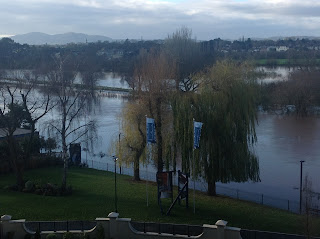I admire the
concept of kickstarter funding, but until now, I have not seen anything that I
really wanted.
The funding concept is
simple, some genius has an idea, but needs money to take it further, so they
set up a web site explaining the invention and make possible customers an
offer; in exchange for one of the, as yet non existent items, you send some
money. If all goes well enough cash is sent to get the project off the ground,
and eventually you are the proud owner of the relevant gismo.
What the various kickstarted sites do is to provide a single site where these projects can be displayed. I suspect that they also require some standards and financial discipline, but I haven't checked that.
There are
obviously risks, the thing might not be made, or the early prototypes are
rubbish etc. etc. As I understand it, when it all goes wrong you are supposed to get your money back. I love the idea, but one way or another I am usually not quite filled with enough
enthusiasm to actually send cash.
Today was
different. I came across some guys who want to make a light that runs on
gravity. They think they can make these things so that they sell for a few
dollars and can potentially replace kerosene lamps, which are all over the
third world and are smelly and dangerous. They cause indoor air pollution,
contributing to asthma and such, and they cause fires.
The lamp works by
having a pulley that drives a small generator. The force comes from hanging a
sack of rocks from the pulley and letting it slowly fall to the ground. So
actually, it doesn't run on gravity, it runs on the muscles that have lifted up
the sack of rocks. According to the bumph the device comes in a sturdy sack,
which once unpacked can be used to hold 9 Kilos of rock, mud, or whatever you
have available.
It seems such an
obvious idea that I am amazed that no one has thought of it. I suspect that it
was waiting for the LED to be invented so that there was a light source
available that does not need much power. I did find some similar ideas in student projects from a few years ago, but they did not get made, I presume because older lightbulbs used too much power so the sack of rocks would have been too heavy to lift
If these guys do
manage to make lots of them it should only be a matter of time before bright
young kids all over the world have figured out how to power all sorts of other
things from them. I can picture Raspberry Pis being connected as we speak.
Will it charge a
phone I wonder? The possibilities are endless.
If you are
interested, the link to the project is
You can watch a video of the thing working.



























